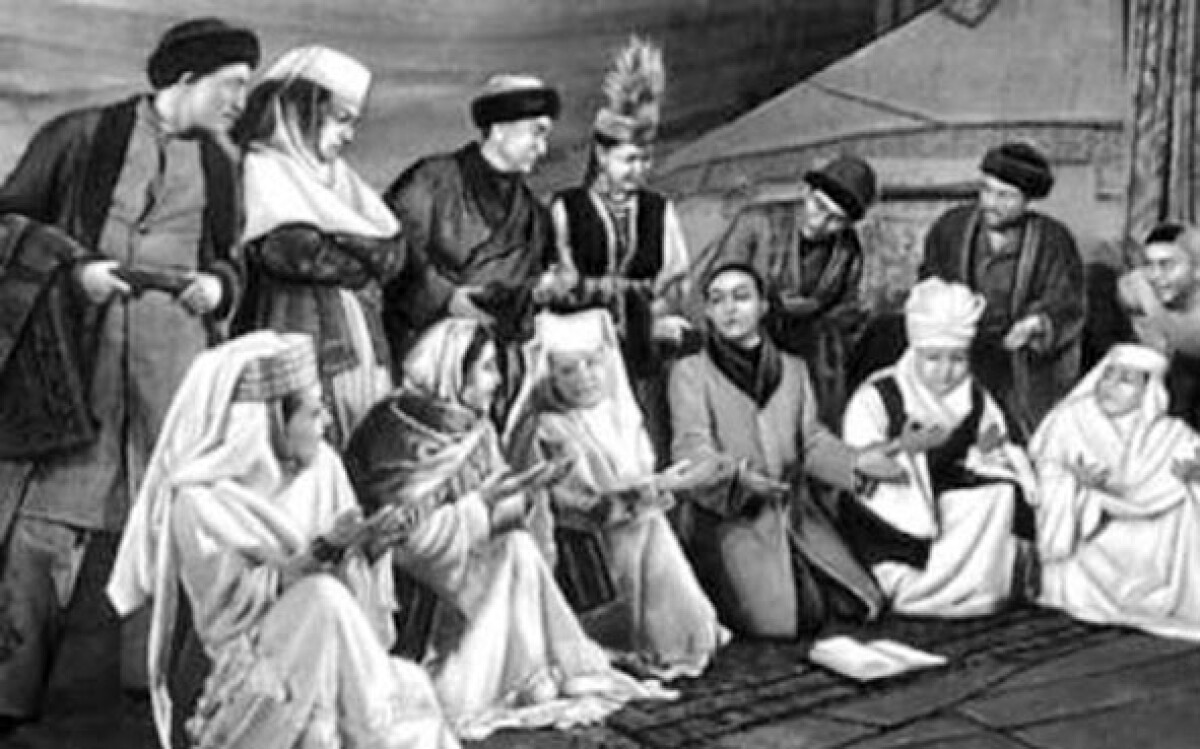
Kuda tusu — a long existing, not forgotten obligatory tradition of the Kazakh people.
The father of the bridegroom after arrival of the zhaushy (entrusted people sent to the bride’s side), who was already agreed on the wedding, sends to the future in-laws the matchmakers, who were headed by the closest relative or sometimes himself.
The procedure of the match-making, as in many other nations, was rather difficult, though very interesting.
The agreement on the size of kalym (dowry), date of the wedding was sealed with the mutual oath, which was done in the following way: head matchmakers of both sides dipped their fingers of their right fingers of their right hands in the wooden bowl of blood of a just killed sheep. In earlier times, this oath was sealed in the way that the matchmakers dipped the heads of their spears or arrow-heads into the bowl of blood. After this oath the aksakals (old, wise people) blessed the agreement. Then the closest people of the bridegroom presented gifts to the bride and her parents, both sides of the bride and the groom ate from one dish.
«Kuiryk bauyr» (ceremonial treatment, consisting of liver and fat-tail fat). It obliged parents of both sides with certain rights and liabilities, after this ritual nobody could recoil, otherwise, the guilty party should pay the «forfeit» and should return the received «Kalyn mal».
At the departure of the future in-laws they were presented with gifts — kiit (to dress). The father of the groom got the most valuable kiit, even if he was not among the matchmakers. Others got the kiit according to their dignity status. In well-to-do families the father of the groom got the whole herd of horses or other precious gifts and as obligatory gift a saddle horse; other matchmakers were given presents accordingly. The matchmakers from the bride’s side also got the kiit, though it was less than that of the bride’s father’s part, which was explained by the necessity of payment and part of the kalym.
The head representative of the matchmakers was called «bas kuda» (bas — head); fathers of the bride and the groom — «bauyzdau kuda», that is the closest.
According to the existing custom the «bas kuda» is peculiarly dear to the girl after her marriage. She would call him «agaeke» (uncle), who should take care of her always. The girl (bride) honors him all her life.
Used materials:
Dzhelbudin E.T. Traditions and customs of Kazakhs. Adet-Guryp.
